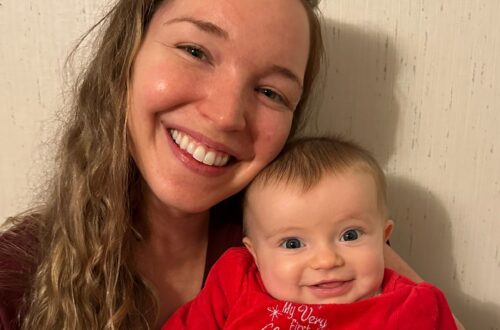
Where is God in the Midst of Suffering? Reflections on ‘Divine Hiddenness’
In response to age-old question, “where is God in the midst of suffering?” I previously wrote an article on divine love and human suffering, based on C.S Lewis’ book, The Problem of Pain. Lately, I’ve been reading and reflecting on Howard-Snyder and Moser’s Divine Hiddenness, a collection of essays on the ‘hiddenness’ of God, written by various philosophers, from both Christian and atheist backgrounds.
Where is God in the midst of suffering?
A question woven through these essays, and one which often saturates our culture is this: “If God were perfectly loving, then why doesn’t He show more of Himself to us? Why does He leave us wondering where He might be? Where is God in times of despair, confusion, or grief? Where is God in the midst of suffering? When we’re desperate to see Him, but simply can’t?”
Some argue that if God were real and truly good, then He should make it impossible for us to disbelieve. Meaning, the very act of disbelief would be unthinkable, since He would be so intimately known and tangible to us. Since we cannot always feel God’s presence or see Him clearly — as we can the table or chair in front of us — the skeptic would argue that He must not truly exist. One may conclude, “If I can’t see him, perhaps he’s not really the God I thought him to be. How can I even know he is here at all?”
If this is you: if you’re experiencing waves of darkness, isolation, or depression, while struggling to clearly see God through all of it, you’re not alone. For even the Psalmist stated:
“Awake, O Lord! Why do you sleep? Rouse yourself! Do not reject us forever. Why do you hide your face?”
Psalm 44:23–24
Like the Psalmist, we may crave to see and experience God more deeply and clearly, especially in times of isolation or distress. Yet could it be, as Michael Murry writes in an essay titled, Deus Absconditus, that God’s love would not just lead us towards an awareness of his existence, but also towards other qualities and attributes needed for us to experience temporal and eternal happiness? Could it be that a sense of ‘divine hiddenness’ might be one of them? What if ‘divine hiddenness’ might not actually be a bad thing, and instead have a place in our understanding of God, His love, and the function of free will?”
The Tension and Beauty of Free Will
We find, through the gift of free will, that God is not one to force anything upon us. As free creatures, we have space to choose how we might live, and who we might follow. Out of His love, God calls us to Himself, yet He does not force or coerce this process upon us.
As Murray writes, if we had such a powerful awareness of God on a day to day basis, where we could see Him face to face, this may in a sense, “overwhelm” our freedoms and free will.
In other words, if it were so utterly obvious to us that God was present every moment of the day, or if we could see Him standing over us — just as a hovering caregiver might keep close eyes on his/her child — then we would be so compelled to live and act accordingly. We would be forced to live rightly, for we would constantly fear punishment if we strayed off course. Might God, then, keep Himself veiled to a certain extent, to prevent us from being intimidated in this way?
For example, while on a leash, walking with its owner, a dog knows how to submit and follow along in obedience. The real test comes when the leash is released, and the owner allows the dog to move about on its own way. The dog is not free to fully choose which way to go until his owner lets go of the leash. The dog can then either run away or stay, the choice is his. How freeing, yet vulnerable this place can be. Thus is the nature of free will.
The Need for Good and Evil
So then, as Murray claims, we cannot exercise true free-will unless God maintains a degree of hiddenness towards the world. To clarify, in claiming that He might be ‘hidden’ this does not mean he is ‘absent’ or not fully present. For God is surely omnipotent; there is not a place we can go on this earth where his presence does not not linger. Yet in order to truly choose, we need the space and freedom to do so.
Which means, we need an environment that includes choices for good and evil, so that neither one outweighs the other. If we only lived in a world full of good, we would wouldn’t actually be choosing good, since that would be the only option. In order to choose good, we need the freedom to resist evil. In order to resist evil, it must be looming around somewhere as an option or choice.
The Purpose Behind it All
So here we are, confronted with the task of moving through life with this beautiful, yet tortuous gift of free will. We believe God is there, but we can’t always see Him. And yes, perhaps divine hiddenness is needed to some degree for free will to be possible.
Well then, now we might ask, “Why does God have his creatures walk through this messy world full of good and evil, and task them with the responsibility to pick from “right” and “wrong”? What’s the purpose of all this free-will in the first place?
As Murray and other philosophers state, this place of freely choosing between good and evil offers us the opportunity to participate in the process of soul-making.
Murray writes:
“…The function of this earthly life, a time during which we are capable of making free choices between morally good and evil courses of action, is to have the opportunity to develop morally significant character. Developing characters which have moral significance requires that they be chosen and cultivated by their bearers. And this can only be done if creatures are first given the sort of morally significant freedom… we might say that the function of the earthly life on this view is soul-making, and that a necessary condition for soul-making is morally significant libertarian freedom.
Divine Hiddenness, p. 65
This process of ‘soul-making’ certainly doesn’t satisfy all our questions related to evil or suffering, yet it might offer some sense or meaning to parts of life’s pain.
Press on, and journey on, my friend in Christ. For you, in the midst of evil, suffering, or heartache, are taking part in this soul making process, as you cling to the roots of your soul and choose to live out Christ’s righteousness and goodness despite the world’s darkness and decay.
Instead of continually asking, “Where is God?” celebrate the ways in which He lives within you, guiding and directing you in your quest for justice, beauty, and truth.

References:
Murray, Michael. “Deus Absconditus” Divine Hiddenness: New Essays, edited by Daniel Howard-Snyder and Paul Moser. Cambridge, Cambridge University Press, 2002. p. 62-80




